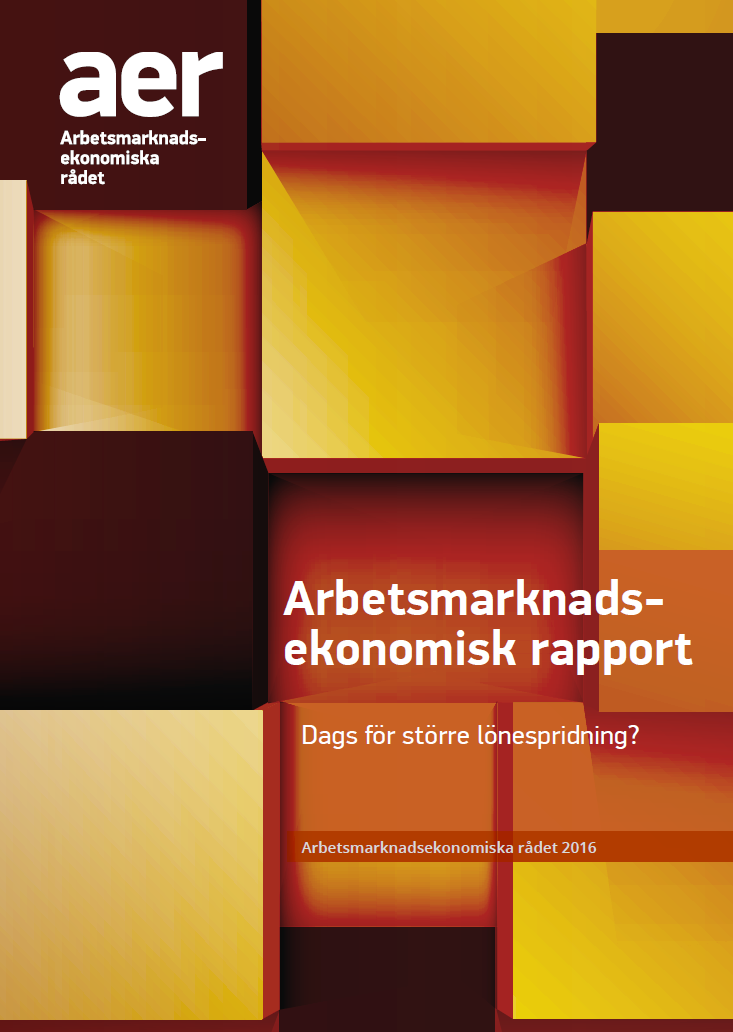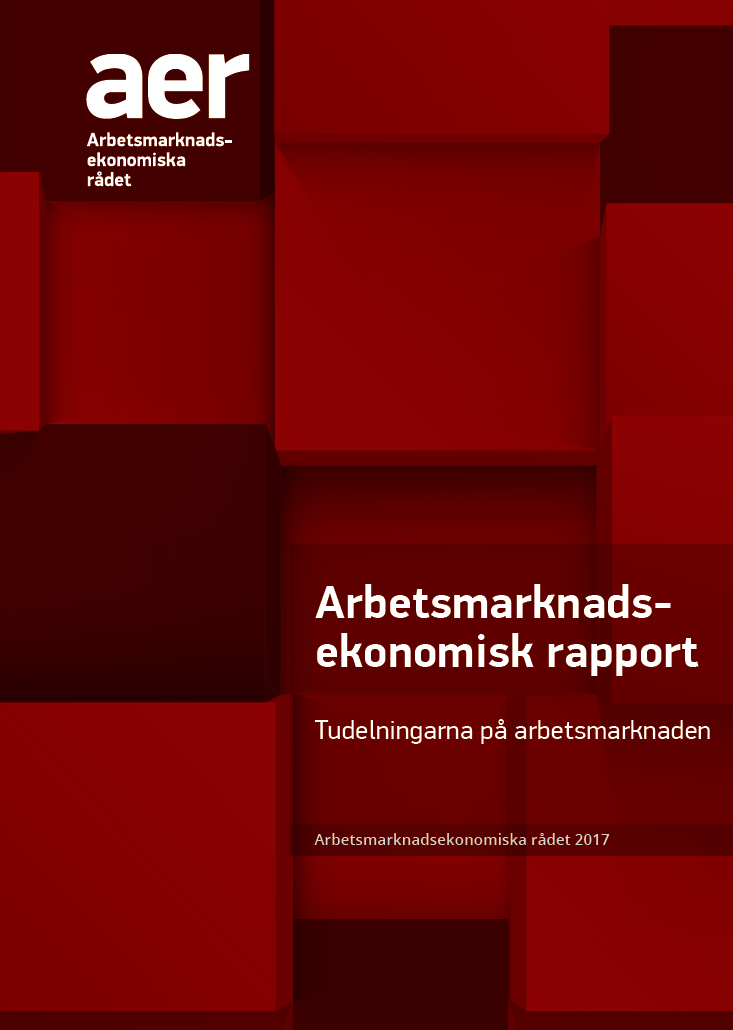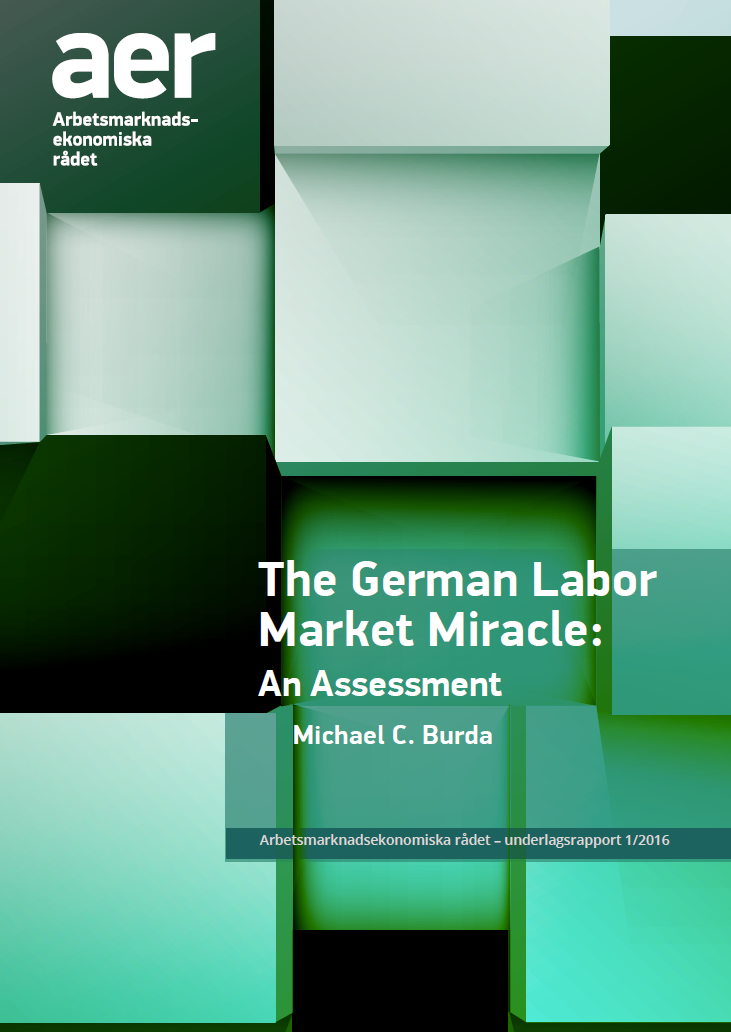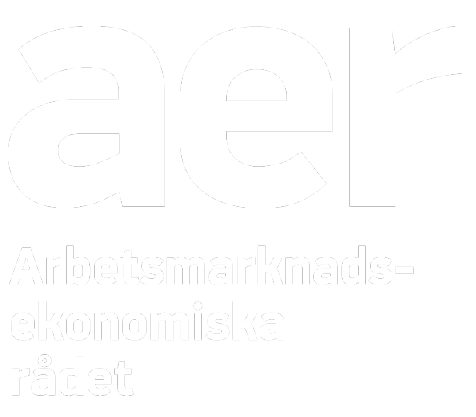About the Swedish Labour Policy Council (AER)
The Swedish Labour Policy Council was an independent expert council financed by the Confederation of Swedish Enterprise. The Council was established in 2015. In April 2018, the Council ceased to exist due to the decision of the Confederation of Swedish Enterprise to discontinue the funding of Council.
To guarantee independence, the Council’s budget was decided for three years at a time and the Confederation did not have access to the Council’s material before publication.
During its period of operation, the Council was tasked with analysing the effects of wage setting, active labour market policies and labour law on the labour market. In addition, the Council was to analyse how the level and structure of wage growth affected employment and, in particular, how wage setting could contribute to reducing unemployment in the long run.
The Council was chaired by Professor Lars Calmfors, Stockholm University and the Research Institute of Industrial Economics (IFN). The other members were Professor Ann-Sofie Kolm, Stockholm University, Professor Tuomas Pekkarinen, VATT and the Aalto University, Helsinki, and Professor Per Skedinger, the Research Institute of Industrial Economics (IFN) and Linnaeus University.
If you want to contact the Council’s former members, you can do so on the following e-mail addresses. Please send general questions regarding the Council and its publications to the Council’s former secretary, Simon Ek.
Simon Ek (Secretary)
simon.ek@ifn.se
Lars Calmfors (chair)
lars.calmfors@iies.su.se
Per Skedinger (deputy chair)
per.skedinger@ifn.se
Ann-Sofie Kolm (member)
ann-sofie.kolm@ne.su.se
Tuomas Pekkarinen (member)
tuomas.pekkarinen@vatt.fi
Reports and summaries in English
The Council fulfilled its tasks primarily through the publication of an annual labour market report. In total, five labour market reports and two background reports by external researchers were published. The summaries of two of these labour market reports and one background report are available in English:
 Time for Larger Wage Dispersion?
Time for Larger Wage Dispersion?Dags för större lönespridning?
(February 15 2016)
The Councils second report was published in February 2016 and analysed the effects of minimum wages, wage dispersion and deteriorating skill levels on the Swedish labour market.
 The Duality of the Swedish Labour Market
The Duality of the Swedish Labour MarketTudelningarna på arbetsmarknaden
(February 14 2017)
This report studies three different dualities on the Swedish labour market. First, it shows that the difference between natives and foreign born in labour market attachment is underestimated when only taking into account employment and unemployment rates. Secondly, it studies the differences between fixed-term and permanent employment. Lastly, the different expected future development of tradable (manufacturing) and non-tradable sectors are discussed. This may cause problems for the pay bargaining norm, according to which the so called cost mark set by the tradable sector is to be followed by all other sectors.
 The German Labor Market Miracle:
The German Labor Market Miracle:An Assessment
(April 21 2016)
During the 1990s, Germany was occasionally called the ”sick man of Europe” due to its low employment rates and competitiveness on the global markets. Since the beginning of the 2000s, however, Germany has seen a remarkable recovery. This background report was written by Michael C. Burda and analyses this so called “German labour market miracle”.
Presentations in English
The Council members have also done some presentations in English, both abroad and in Sweden. The slides from these presentations can be accessed below:
Comments on the study “Invandring och arbetsmarknaden för infödda – erfarenheter från Danmark” (Immigration and the labor market for native-born – experiences from Denmark)
Organiser: Centre for Business and Policy Studies
Stockholm, 31 januari 2017
Lars Calmfors
Slides: ![]() How does refugee immigration affect low-skilled in the labor market?
How does refugee immigration affect low-skilled in the labor market?
Conference– Non-standard employment
Organiser: Centraal Planbureau
Haag, Nederländerna, 18 november 2016
Per Skedinger
Slides: ![]() Non-standard employment in Sweden
Non-standard employment in Sweden
Lecture on minimum wages
Organiser: Linnaeus University
Växjö, 18 oktober 2016
Per Skedinger
Slides: ![]() Minimum wages
Minimum wages
Conference- The Minimum Wage: Old and New Issues
Organiser: France Stratégie
Paris, 2 september 2016
Per Skedinger
Slides: ![]() The Right Tool to Reduce Inequalities? A Swedish Perspective
The Right Tool to Reduce Inequalities? A Swedish Perspective
AER seminar: what can we learn from the German labor market miracle?
Organiser:The Swedish Labour Policy Council
Stockholm, 21 april 2016
Slides: <![]() Michael C. Burda
Michael C. Burda
Lectures on minimum wages
Organiser: Stockholm University
Spring 2016
Ann-Sofie Kolm
Slides: ![]() Minimum wages 1
Minimum wages 1 ![]() Minimum wages 2
Minimum wages 2
Annual Meeting of the Finnish Economic Association
Organiser: Finnish Economic Association
Björneborg, 5 februari 2016
Per Skedinger
Slides: ![]() Labour Markets in Finland and Sweden – A Swedish Perspective
Labour Markets in Finland and Sweden – A Swedish Perspective
